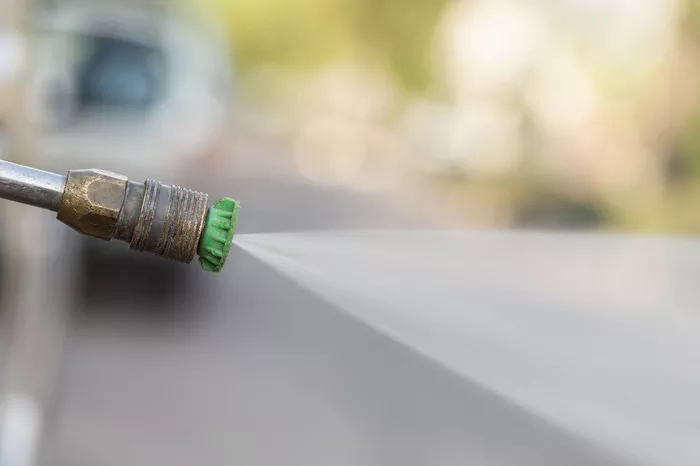Pressure washers are powerful tools designed to blast away dirt, grime, and stubborn stains with high-pressure water. While they are typically used outdoors for cleaning driveways, decks, and siding, you may wonder if it’s safe or even feasible to use them indoors. In this guide, we’ll explore the possibilities, advantages, disadvantages, costs, and safety considerations of using a pressure washer inside your home.
Is It Safe to Use a Pressure Washer Indoors?
Using a pressure washer indoors comes with significant risks and challenges. The high-pressure water jet can cause serious damage to surfaces, furniture, and fixtures inside your home. Additionally, the forceful spray can create a wet and slippery environment, increasing the risk of slips and falls. Moreover, pressure washers generate fumes from gasoline or exhaust that can be harmful if used in confined spaces without proper ventilation.
Advantages of Using a Pressure Washer Indoors
While the risks of using a pressure washer indoors outweigh the benefits, there are some situations where it may be necessary or advantageous:
1. Deep Cleaning: In certain industrial settings such as warehouses or manufacturing facilities, pressure washers can be used indoors for deep cleaning of floors and machinery.
2. Water Recovery Systems: Some pressure washers come with water recovery systems that capture and recycle water, making indoor use more environmentally friendly.
3. Efficiency: For large indoor spaces with concrete or tile floors, using a pressure washer can be more efficient than traditional mopping or scrubbing methods.
Disadvantages of Using a Pressure Washer Indoors
Despite the potential advantages, there are several disadvantages to using a pressure washer indoors:
1. Damage Risk: The high-pressure water jet can easily damage surfaces, paint, and delicate materials inside your home.
2. Safety Hazards: Using a pressure washer indoors increases the risk of slips, falls, and electrical hazards if not used properly.
3. Ventilation: Proper ventilation is essential when using a pressure washer indoors to prevent the buildup of fumes and ensure air quality.
4. Cleanup: Indoor use of a pressure washer can create a messy cleanup process, requiring extra time and effort to dry surfaces and remove excess water.
Cost Considerations
The cost of using a pressure washer indoors includes the initial purchase or rental cost of the equipment, as well as any additional expenses for cleaning agents, safety gear, and ventilation equipment. Additionally, you may incur costs for repairing any damage caused by the pressure washer, such as replacing damaged flooring or furniture.
Safety Tips for Indoor Pressure Washing
If you decide to use a pressure washer indoors despite the risks, follow these safety tips to minimize hazards:
1. Ventilation: Ensure adequate ventilation by opening doors and windows, and using fans or exhaust systems to remove fumes and moisture.
2. Protective Gear: Wear appropriate safety gear, including eye protection, gloves, and non-slip footwear to prevent injuries.
3. Surface Preparation: Inspect indoor surfaces for any cracks, loose paint, or fragile materials that could be damaged by the pressure washer.
4. Low Pressure: Use a pressure washer with adjustable pressure settings, and lower the pressure to the minimum level necessary to achieve effective cleaning.
5. Test Spot: Before starting, test the pressure washer on a small, inconspicuous area to ensure it doesn’t cause damage or discoloration.
Conclusion
While pressure washers are effective tools for outdoor cleaning, using them indoors presents significant risks and challenges. The potential for damage to surfaces, safety hazards, and cleanup difficulties outweigh the benefits in most cases. If you must use a pressure washer indoors, exercise extreme caution, follow safety guidelines, and consider alternatives whenever possible. In general, it’s best to leave indoor cleaning to methods that are safer and more suitable for indoor environments.
FAQs
Q1. Can I Use a Pressure Washer to Clean Carpets Indoors?
A1: Using a pressure washer to clean carpets indoors is not recommended. The high-pressure water jet can saturate the carpet, leading to prolonged drying times and potential mold or mildew growth. Additionally, the forceful spray can damage carpet fibers and backing, causing irreversible damage.
Q2. Is it Safe to Use a Pressure Washer in a Garage or Workshop?
A2: Using a pressure washer in a garage or workshop can be safer than using it indoors, but precautions should still be taken. Ensure adequate ventilation by opening doors and windows, and avoid spraying electrical outlets or equipment. Additionally, protect sensitive surfaces and materials from damage by testing the pressure washer on a small area first.
Q3. Can I Use a Pressure Washer to Clean Walls Indoors?
A3: Using a pressure washer to clean indoor walls is not recommended, as it can cause damage to paint, drywall, and other surfaces. Instead, use gentle cleaning methods such as a sponge or soft cloth with mild detergent to avoid potential damage and maintain the integrity of your walls.

